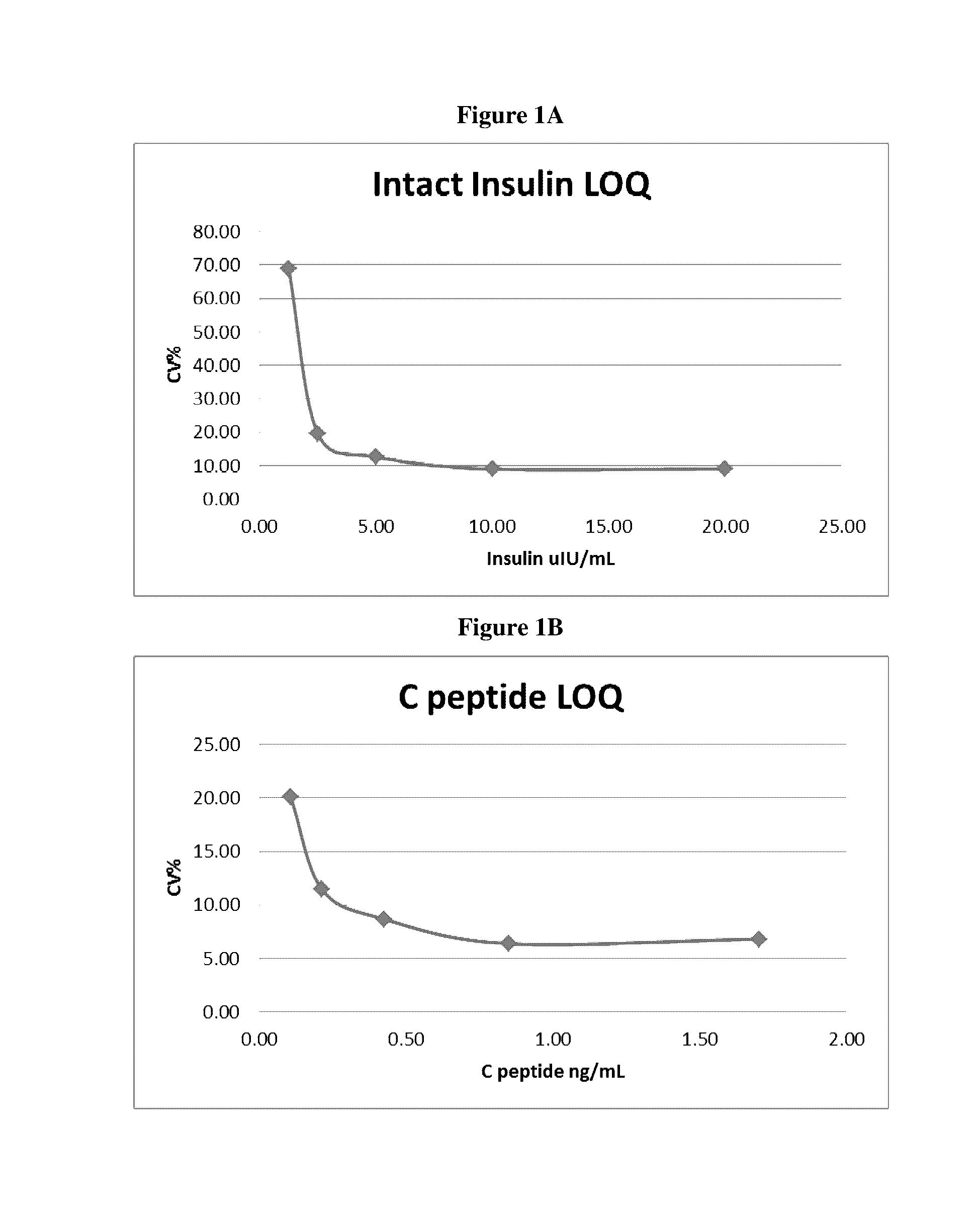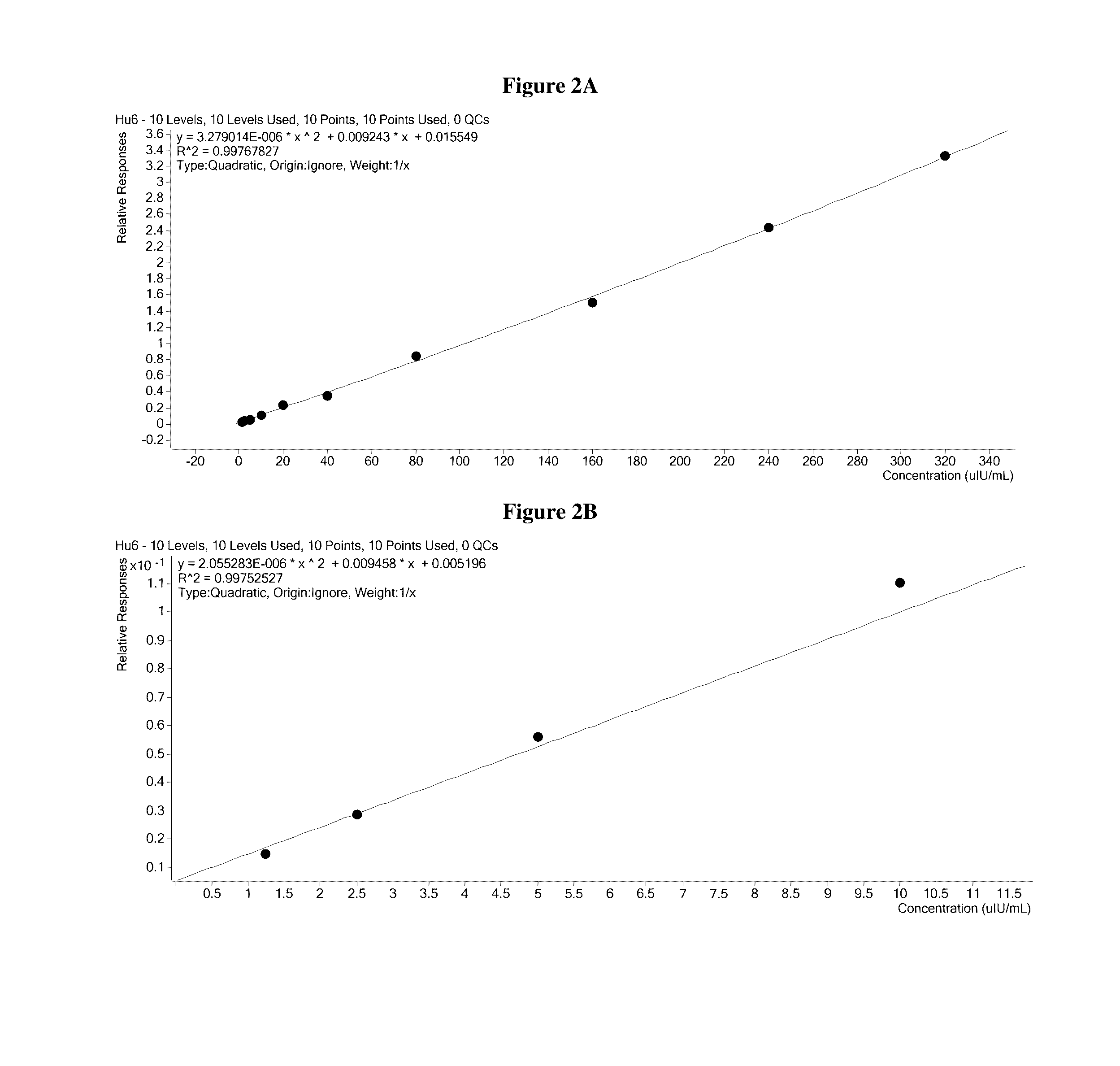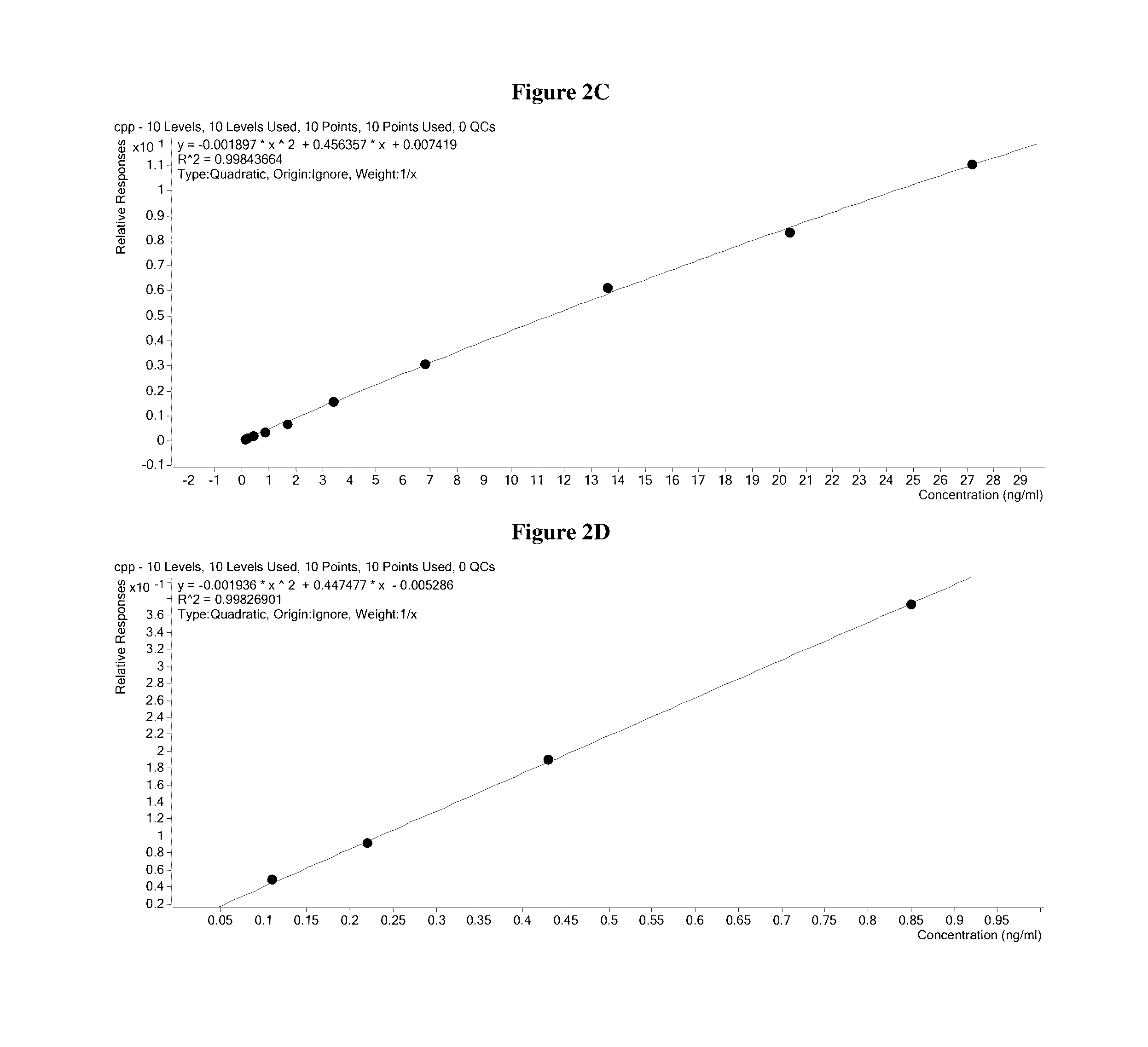Methods for quantitation of insulin levels by mass spectrometry
a mass spectrometry and insulin level technology, applied in the field of methods for quantitation of insulin levels by mass spectrometry, can solve the problems of major public health problems and the lack of international reference methods for insulin, and achieve the effect of high resolution/high accuracy
- Summary
- Abstract
- Description
- Claims
- Application Information
AI Technical Summary
Benefits of technology
Problems solved by technology
Method used
Image
Examples
example 1
Immunocapture
[0270]In this assay, serum was first delipidated and then insulin and C-peptide were immunocaptured using antibodies immobilized on magnetic beads. The beads were subjected to a rigorous washing regime to remove non-specifically bound material and the peptides were subsequently eluted from the beads with acidified acetonitrile in water. An aliquot of Trizma base was added to enhance stability of the peptides in the elution plate. Insulin and C-peptide are unstable at low concentration in a purified, or partially purified state undergoing adsorptive losses and “disappear” from solution. Consequently, once prepared, the elution plate should be run within 5 hours, preferably immediately after preparation, for maximum sensitivity. Elution plates should not be frozen. The processes of calibrator preparation, internal standard addition, delipidation, bead deposition, immunocapture, washing and eluting the peptides from the beads were automated, using a Hamilton STAR® robotic ...
example 2
Liquid Chromatography and Mass Spectrometry
[0271]The elution plate was transferred from the deck of the Hamilton robot to the autosampler of a ThermoFisher TurboFlow Aria TX4 HTLC system and immediately run. The sample was injected onto a hydrophilic / lipophilic balanced (HLB) capture column where insulin and C-peptide were further enriched from background contaminants. After washing, a plug of transfer solvent was used to liberate the peptides from the extraction cartridge and transferred them to a reversed phase analytical column. An acetonitrile gradient chromatographically resolved insulin and C-peptide from the remaining background contaminants and each other.
[0272]The flow of solvent from the HPLC column was directed to the heated electrospray source of an Agilent 6490 mass spectrometer. In the mass spectrometer, only the ions with the desired mass to charge ratio were allowed to pass through the Quadrupole 1 (Q1) area into the collision chamber (Q2). Then the accelerated ions ...
example 3
Intra-Assay and Inter-Assay Precision
[0273]The intra-assay precision is defined as the reproducibility of a measurement within an assay and was generated from assaying 5 replicates from QCL, QCM and QCH. The coefficient of variation (CV) for 5 replicates of a sample was used to determine if the reproducibility is acceptable 15%). Statistics performed on the results for a run determined that the reproducibility (CV) for the QC's ranged from 6.2 to 11.5% for insulin and 5.1 to 6.3% C-peptide (Table 2). Intra-assay precision can also be calculated across all assays (see 930TP5319: Assay Validation Calculator). For insulin within run CV ranged from 4.7 to 9.6% and C-peptide within run CVs ranged from 4.7 to 7.0%.
TABLE 2ControlsLowMidHigha: Intra- Assay Precision: Insulin113.8 38.6 166.0 213.7 42.3 166.5 311.6 39.9 193.8 411.2 37.8 177.9 510.8 35.8 164.8 Mean (uIU / mL)12.2 38.9 173.8 SD1.4 2.4 12.3 CV11.5%6.2%7.1%b: Intra- Assay Precision: C-peptide10.491.767.0920.431.856.8130.511.9...
PUM
 Login to View More
Login to View More Abstract
Description
Claims
Application Information
 Login to View More
Login to View More - R&D
- Intellectual Property
- Life Sciences
- Materials
- Tech Scout
- Unparalleled Data Quality
- Higher Quality Content
- 60% Fewer Hallucinations
Browse by: Latest US Patents, China's latest patents, Technical Efficacy Thesaurus, Application Domain, Technology Topic, Popular Technical Reports.
© 2025 PatSnap. All rights reserved.Legal|Privacy policy|Modern Slavery Act Transparency Statement|Sitemap|About US| Contact US: help@patsnap.com



